In the annals of Portugal’s storied past, different battles have etched their indelible mark upon the tapestry of its history. These clashes, waged amidst the towering fortresses and sprawling plains, were not mere contests of strength, but crucibles in which the fate of a nation hung precariously in the balance. From the clash of steel emerged heroes whose deeds echoed across time, their valor immortalized in the annals of memory.
Beyond the superficial accounts of victories and defeats lies a deeper resonance—a testament to the unwavering spirit that endured amidst the chaos of war. In the shadows of ancient strongholds and across the expanse of battlefields, the struggle for supremacy unfolded, each conflict shaping the destiny of a people. Through the haze of smoke and the cries of the fallen, we glimpse the essence of the human condition—the fragility of life juxtaposed with the boundless resilience of the human spirit. Join this exploration of Portugal’s battles, resonating with timeless themes of courage, sacrifice, and perseverance.
Battle of São Mamede (1128)
The Battle of São Mamede, fought in 1128, served as a watershed moment in Portugal’s quest for independence and the foundation of its monarchy. Situated near the castle of Guimarães in northern Portugal, this battle marked the culmination of a power struggle between Afonso Henriques and his mother, Countess Teresa of Portugal, along with her lover, Fernão Peres de Trava.
Afonso Henriques, then a young nobleman, had ambitions to assert his authority and establish an independent realm separate from the Kingdom of León, to which Portugal was then subject. The battle unfolded as a clash between factions vying for control, with Afonso Henriques leading his forces against those loyal to his mother and her consort.
Despite being outnumbered, Afonso’s tactical acumen and the loyalty of his troops proved decisive. The battle ended in a victory for Afonso Henriques, securing his position as the dominant political figure in the region. This triumph laid the groundwork for his subsequent proclamation as the first King of Portugal, marking the beginning of the Portuguese monarchy.
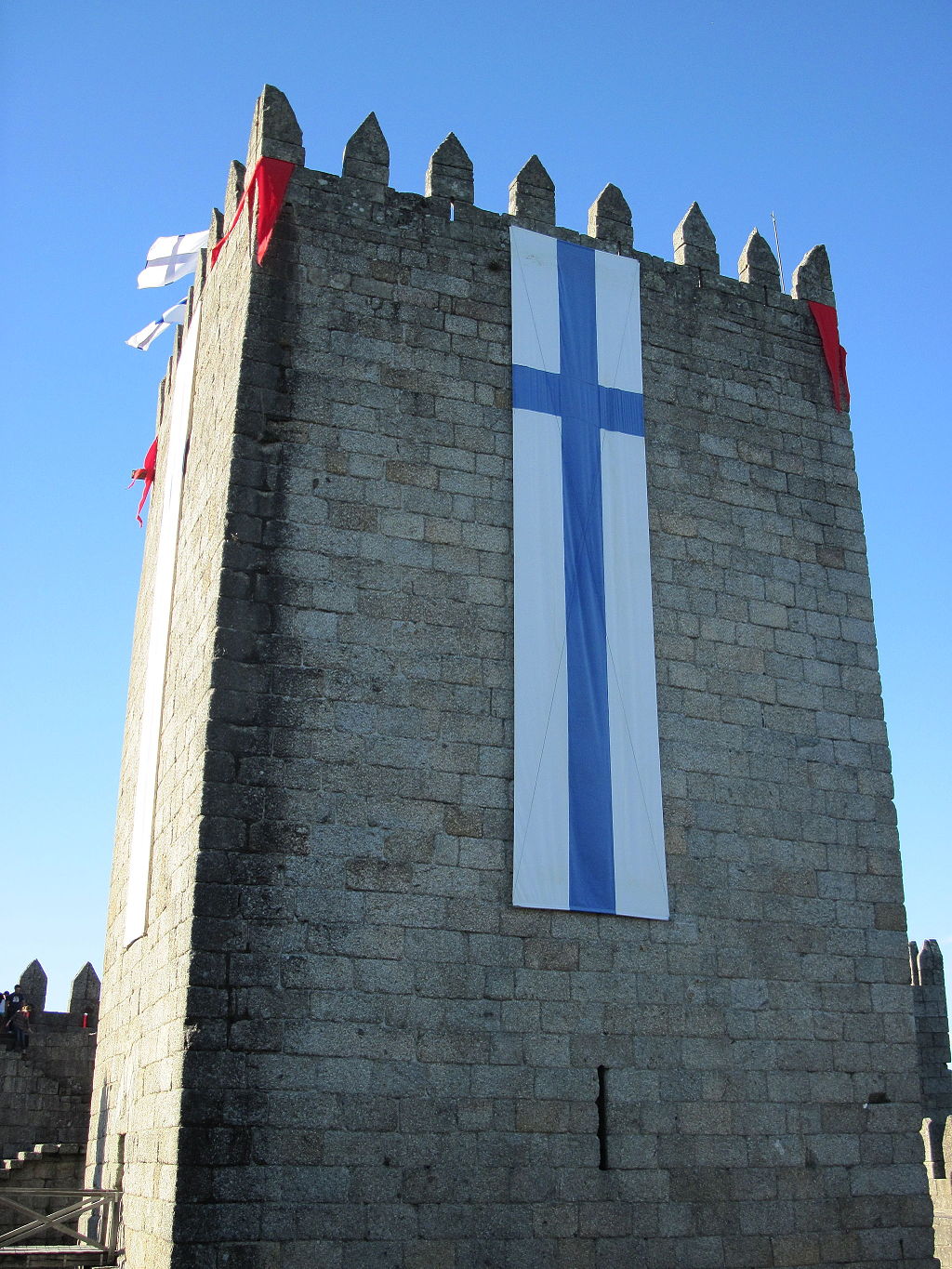
The significance of the Battle of São Mamede extends beyond its immediate outcome. It symbolizes the emergence of Portugal as an independent nation and Afonso Henriques as its founding father. The establishment of the Portuguese monarchy provided stability and a sense of unity to the region, setting the stage for centuries of exploration, expansion, and cultural influence.
Furthermore, the battle’s legacy is enshrined in Portuguese national identity, celebrated as a moment of triumph over adversity and a symbol of the resilience and determination of the Portuguese people. The Battle of São Mamede remains a cornerstone of Portugal’s historical narrative, serving as a reminder of the country’s enduring quest for sovereignty and self-determination.
Battle of Ourique (1139)
The Battle of Ourique, fought in 1139, represents one of the most significant events in Portuguese history, solidifying the emerging nation’s independence and shaping its future trajectory. Situated near the town of Ourique in southern Portugal, the battle unfolded during a time of political upheaval and contention over leadership following the Battle of São Mamede.
At the heart of the conflict was Afonso Henriques, the newly crowned King of Portugal, who sought to consolidate his power and assert Portuguese sovereignty against external threats, particularly the Moorish forces occupying the Iberian Peninsula. The battle is shrouded in legend, with accounts suggesting that Afonso Henriques received divine intervention and a vision of Christ, instilling him with the confidence to confront the enemy.
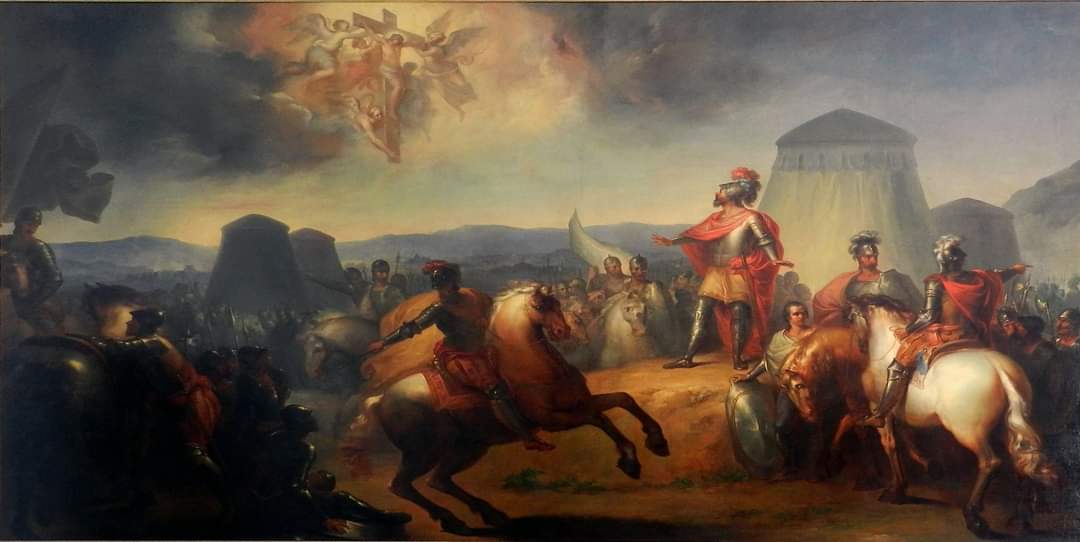
Despite being outnumbered, Afonso Henriques led his forces with strategic prowess and military skill, securing a decisive victory over the combined Moorish forces. The triumph at Ourique not only bolstered Afonso’s claim to the throne but also elevated his status as a national hero and symbol of Portuguese unity and resilience.
The Battle of Ourique is significant not only for its immediate outcome but also for its long-term implications. It solidified Afonso Henriques’ position as the undisputed leader of Portugal, paving the way for the consolidation of the Portuguese monarchy and the expansion of its territory. Moreover, the battle served as a rallying cry for the Portuguese people, galvanizing their spirit of independence and determination to resist foreign domination.
In the annals of Portuguese history, the Battle of Ourique remains a defining moment, emblematic of the nation’s quest for sovereignty, identity, and self-determination. It continues to be celebrated and commemorated as a testament to the courage, resilience, and vision of those who fought to secure Portugal’s place among the nations of the world.
Siege of Lisbon (1147)
Another pivotal event in Portuguese history marked a significant milestone in the Reconquista, the Christian reconquest of the Iberian Peninsula from Muslim rule. Led by King Afonso I of Portugal, the besieging forces sought to capture the city from the Almoravid dynasty, which had held control since the 11th century.
One of the most poignant moments of the siege revolves around the legendary figure of Martim Moniz. As the Christian forces attempted to breach one of the city gates, they encountered fierce resistance. In a moment of selfless valor, Martim Moniz realized that the only way to keep the gate open for his comrades was to sacrifice himself. He wedged his body in the closing gates, preventing them from fully shutting, at the cost of his own life. Martim Moniz’s courageous act allowed the Christian forces to breach the city’s defenses, ultimately leading to the fall of Lisbon.

The siege itself was a testament to the determination and resolve of the Christian forces, who employed a combination of military strategy, siege warfare tactics, and a naval blockade to isolate and weaken the defenders. After several months of intense fighting, Lisbon fell to the besiegers, marking a significant territorial gain for the Kingdom of Portugal and reinforcing its commitment to the Reconquista.
Martim Moniz’s sacrifice remains an enduring symbol of heroism and selflessness in Portuguese history. His brave actions exemplify the spirit of sacrifice and unity that fueled the Reconquista and continue to inspire generations of Portuguese as a testament to the enduring quest for freedom and independence.
Battle of Aljubarrota (1385)
The Battle of Aljubarrota, fought on August 14, 1385, is another defining moment in Portuguese history, securing the nation’s independence from the Kingdom of Castile and solidifying the legitimacy of the House of Aviz on the Portuguese throne. Situated near the town of Aljubarrota in central Portugal, the battle unfolded during a period of political instability following the death of King Ferdinand I of Portugal, leaving the throne contested between his daughter Beatrice and her husband, King John I of Castile, and John, Master of the Aviz Order.
Facing a formidable Castilian army, led by John I of Castile and supported by French and Castilian knights, the Portuguese forces, commanded by Nuno Álvares Pereira, devised a brilliant defensive strategy to counter the superior numbers and cavalry of the enemy. Utilizing the terrain to their advantage, the Portuguese constructed a fortified position anchored by a line of stakes, rendering the Castilian cavalry ineffective and vulnerable to Portuguese infantry and archers.
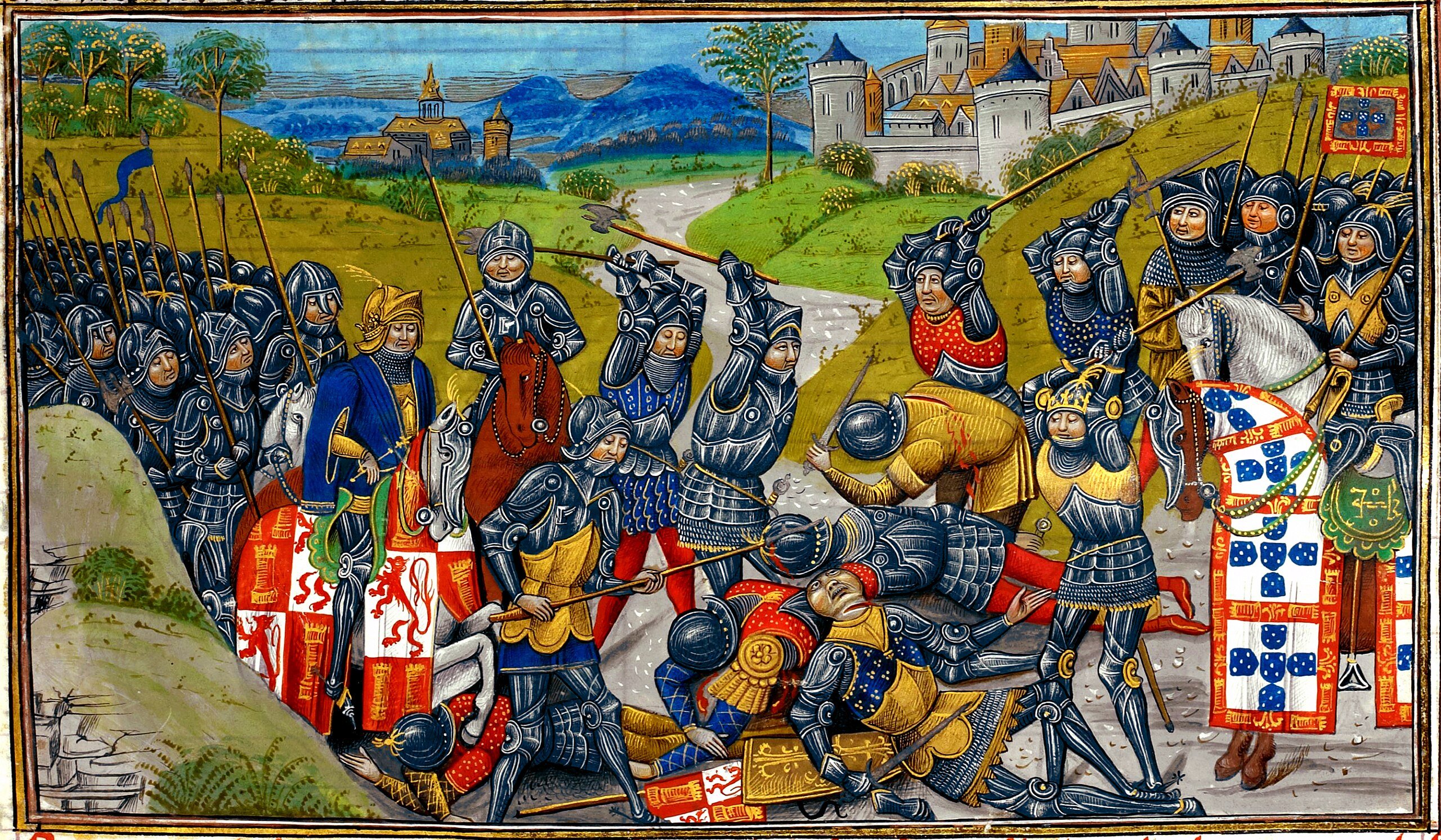
The Battle of Aljubarrota culminated in a resounding victory for the Portuguese, with the Castilian forces suffering heavy losses and their ambitions of annexing Portugal thwarted. The triumph at Aljubarrota not only secured Portuguese independence but also established John I of Portugal, of the House of Aviz, as the undisputed monarch, inaugurating a new dynasty that would rule Portugal for centuries to come.
The Battle of Aljubarrota holds enduring significance in Portuguese national identity, symbolizing the nation’s resilience, unity, and determination to defend its sovereignty against external threats. It remains commemorated as a pivotal moment in Portuguese history, reaffirming the country’s independence and shaping its destiny as a sovereign nation.
Conquest of Ceuta (1415)
The Conquest of Ceuta in 1415 was a daring and audacious expedition that marked the beginning of Portugal’s overseas empire and its emergence as a formidable maritime power. Situated on the North African coast, Ceuta was a strategic stronghold coveted for its strategic location and lucrative trade routes. The Portuguese, under the command of Prince Henry the Navigator, embarked on an ambitious campaign to capture the city from the Marinid Sultanate of Morocco.
The expedition was shrouded in secrecy and intrigue, with Prince Henry orchestrating meticulous planning and preparations to ensure its success. Equipped with a formidable fleet and seasoned troops, the Portuguese set sail for Ceuta, braving treacherous seas and unknown dangers lurking beyond the horizon.
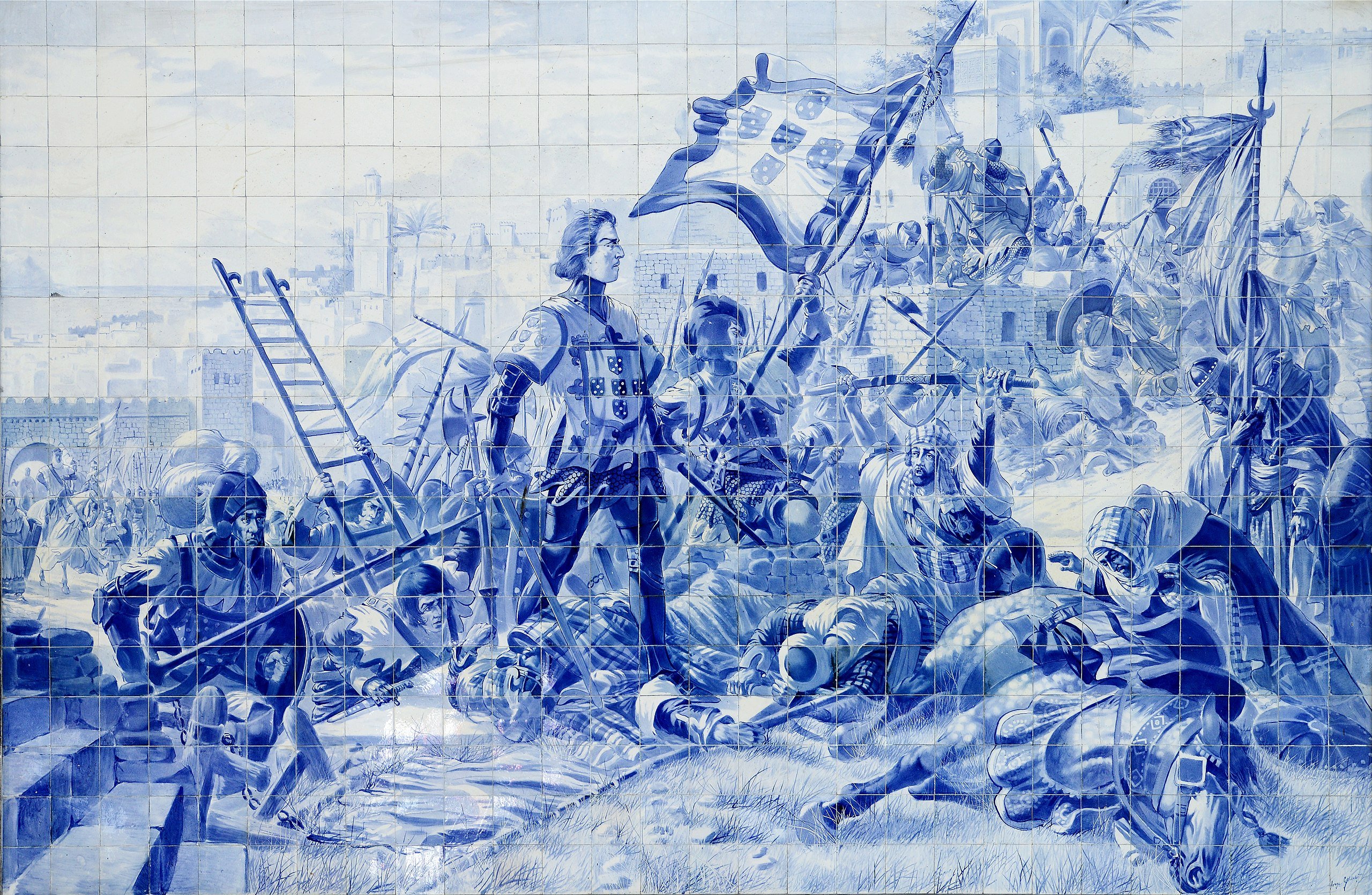
As the Portuguese armada approached Ceuta, the defenders were caught off guard by the suddenness and ferocity of the assault. Led by fearless commanders and buoyed by their determination to expand Portuguese influence, the invaders launched a relentless assault on the city’s fortifications, facing fierce resistance from the defenders.
Amidst the chaos of battle, the Portuguese demonstrated their superior tactics and weaponry, overwhelming the enemy with their disciplined ranks and unyielding resolve. After a grueling siege, Ceuta fell to the Portuguese, securing a vital foothold in North Africa and opening the door to further conquests in the region.
The Conquest of Ceuta was a triumph of ambition, courage, and vision, propelling Portugal onto the world stage as a formidable maritime power and heralding the dawn of the Age of Exploration. It signaled the beginning of Portugal’s storied maritime empire and laid the foundation for centuries of exploration, colonization, and trade that would shape the course of world history.
Battle of Diu (1509)
The Battle of Diu in 1509 stands as a monumental clash of civilizations and a pivotal moment in maritime history, showcasing the zenith of Portuguese naval power and the beginning of European dominance in the Indian Ocean. Situated off the coast of Gujarat, India, the battle pitted the Portuguese Empire, led by Dom Lourenço de Almeida and Dom Francisco de Almeida, against a powerful coalition of Muslim forces comprising the Ottoman Empire, the Sultanate of Gujarat, and the Mamluk Sultanate.
The Portuguese sought to assert their control over crucial trade routes in the Indian Ocean, particularly the lucrative spice trade, and to establish a stronghold in the region. The Muslim coalition, recognizing the threat posed by Portuguese expansionism, mobilized their formidable naval forces to confront the Portuguese fleet off the coast of Diu.
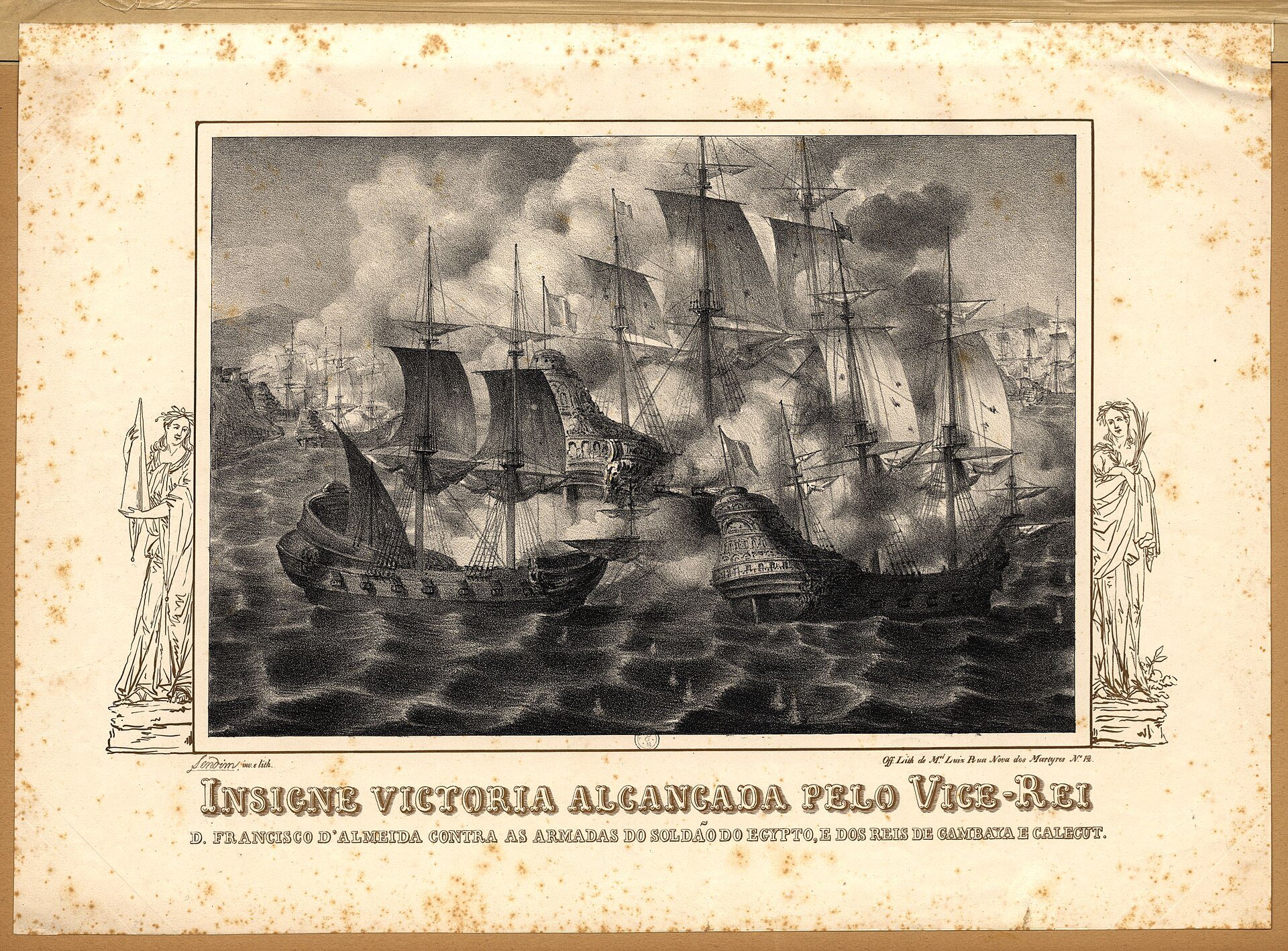
The battle that ensued was fierce and ferocious, with both sides unleashing their full military might in a desperate struggle for supremacy. The Portuguese, renowned for their superior naval tactics and firepower, unleashed a devastating barrage of cannon fire upon the enemy fleet, decimating their ranks and shattering their resolve.
Despite facing overwhelming odds, the Portuguese emerged victorious, inflicting heavy losses upon the enemy and securing their dominance in the Indian Ocean. The Battle of Diu not only established Portuguese control over key trade routes but also marked the beginning of European hegemony in the region, heralding a new era of global maritime supremacy.
The legacy of the Battle of Diu endures as a symbol of the bravery, skill, and determination of the Portuguese sailors who risked everything to expand their empire and secure their place in history. It remains a defining moment in the annals of maritime warfare and a symbol of European exploration and conquest in the Age of Discovery.
Battle of Alcácer Quibir (1578)
The Battle of Alcácer Quibir, also known as the Battle of the Three Kings, fought on July 4, 1578, was a defining moment in Portuguese and North African history, with far-reaching consequences for both regions. Situated near the town of Ksar-el-Kebir in Morocco, the battle unfolded as a clash between the forces of the Portuguese Empire, led by King Sebastian I, and the Saadi Sultanate of Morocco, led by Sultan Abd al-Malik.
The battle was precipitated by King Sebastian’s ambitious crusade to aid his North African allies and expand Portuguese influence in the region. Despite warnings of the dangers posed by such a venture, Sebastian was undeterred, driven by his fervent religious zeal and desire for glory on the battlefield.
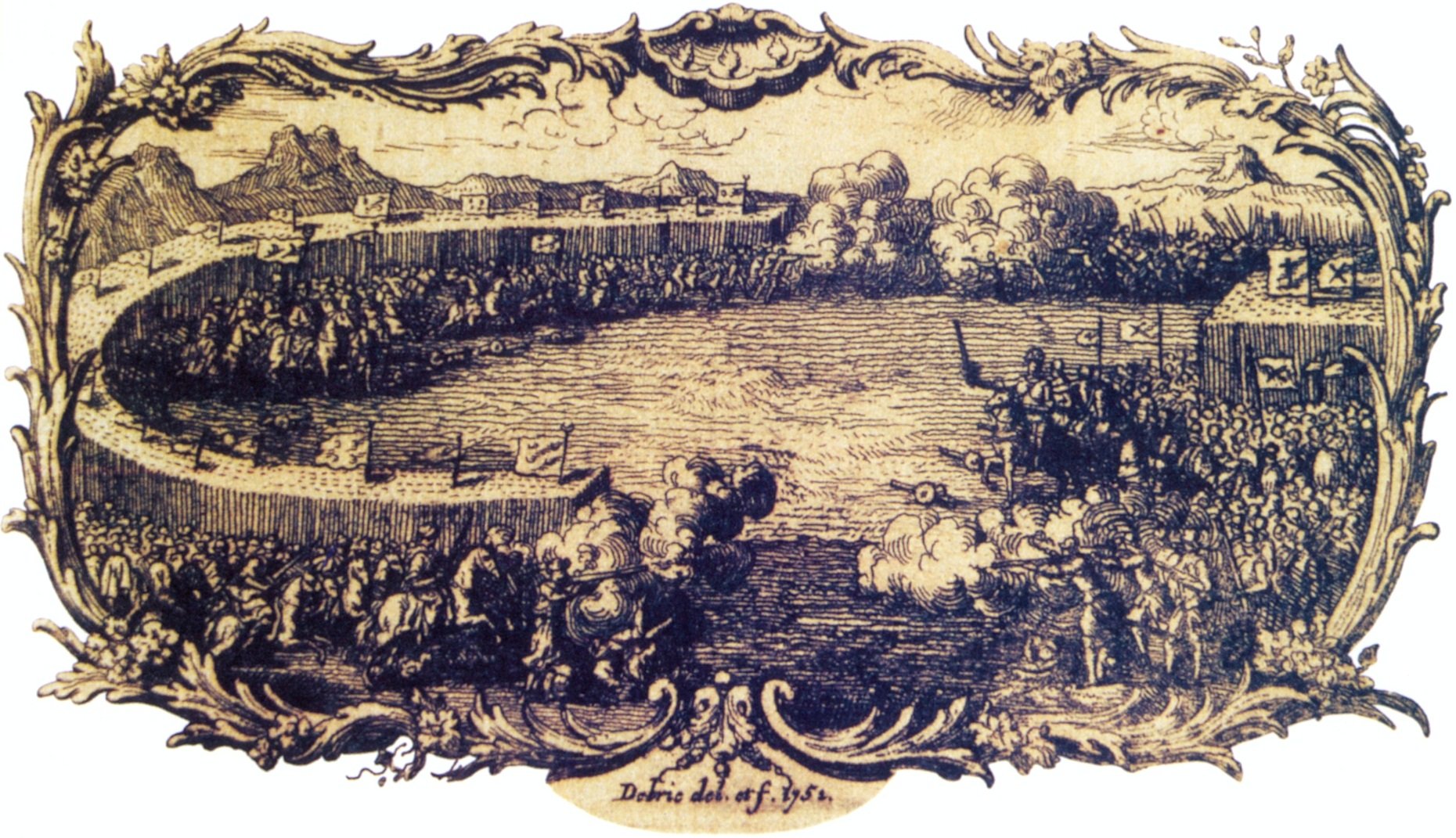
The conflict proved to be a catastrophic miscalculation for the Portuguese forces, as they found themselves vastly outnumbered and outmaneuvered by the seasoned Moroccan army. In a desperate bid for victory, King Sebastian charged recklessly into the fray, leading his troops into the heart of the enemy lines.
The Battle of Alcácer Quibir ended in disaster for the Portuguese, with King Sebastian and much of his army perishing on the battlefield. The defeat dealt a severe blow to Portuguese morale and prestige, plunging the nation into a period of political instability and dynastic crisis known as the Portuguese Interregnum.
For Morocco, the battle was a moment of triumph and consolidation, cementing Saadi rule and repelling European incursions into North Africa. The legacy of Alcácer Quibir endures as a cautionary tale of the perils of imperial overreach and the consequences of hubris on the battlefield.
Battle of Ameixial (1663)
The Battle of Ameixial, fought on June 8, 1663, during the Portuguese Restoration War, was a significant military engagement that played a crucial role in consolidating Portuguese independence from Spanish rule. Situated near the village of Ameixial in southern Portugal, the battle unfolded as part of the broader conflict between Portugal and Spain, following decades of Spanish attempts to reassert control over the Portuguese crown.
Led by the Portuguese general Luís de Vasconcelos e Sousa, the Portuguese forces faced off against a formidable Spanish army commanded by the Duke of Osuna. Despite being outnumbered, the Portuguese army displayed remarkable tactical skill and resilience, leveraging the terrain to their advantage and repelling Spanish advances.
The Battle of Ameixial ended in a decisive victory for the Portuguese, dealing a significant blow to Spanish aspirations of reconquest and reaffirming Portuguese sovereignty. The outcome of the battle bolstered Portuguese morale and strengthened the resolve of the Portuguese people to defend their independence at all costs.
Strategically, the Battle of Ameixial marked a turning point in the Portuguese Restoration War, shifting the momentum decisively in favor of the Portuguese cause. It paved the way for further Portuguese successes in the conflict and ultimately contributed to the signing of the Treaty of Lisbon in 1668, which formally recognized Portuguese independence from Spain.
Battle of Montes Claros (1665)
The Battle of Montes Claros, fought on June 17, 1665, was a decisive engagement during the Portuguese Restoration War between Portugal and Spain. Situated near the town of Montes Claros in central Portugal, the battle unfolded as Spanish forces, under the command of the Marquis of Caracena, sought to invade Portugal and reassert Spanish dominance.
Facing the Spanish army was the Portuguese force led by King John IV of Portugal and his general, Luís de Vasconcelos e Sousa. Despite being outnumbered, the Portuguese employed superior strategy and determination to secure victory. The Portuguese army utilized the rugged terrain to their advantage, effectively neutralizing Spanish cavalry charges and inflicting heavy casualties on the advancing forces.

The Battle of Montes Claros culminated in a resounding victory for the Portuguese, thwarting Spanish attempts at reconquest and consolidating Portuguese independence. The triumph at Montes Claros bolstered Portuguese morale and reinforced the nation’s determination to defend its sovereignty against foreign aggression.
Battle of Buçaco (1810)
The Battle of Buçaco, fought on September 27, 1810, during the Peninsular War, was a significant confrontation between the allied forces of Portugal and the United Kingdom, led by the Duke of Wellington, and the French army commanded by Marshal André Masséna. Situated near the town of Buçaco in central Portugal, the battle unfolded as part of the broader struggle to expel French forces from the Iberian Peninsula.
Facing superior French numbers, the allied forces utilized the rugged terrain of the Serra do Buçaco to their advantage, deploying their troops along the steep slopes and narrow ridges to form a formidable defensive position. The French, underestimating the strength of the allied position, launched repeated assaults against the entrenched defenders.

Throughout the day-long battle, the allied forces repelled wave after wave of French attacks, inflicting heavy casualties on the advancing enemy. Despite fierce fighting and determined French efforts to break through the allied lines, the defensive position held firm, denying Masséna’s forces a decisive victory.
The Battle of Buçaco ended inconclusively, with both sides sustaining significant losses. While the French failed to dislodge the allied forces from their defensive positions, the allies were unable to deliver a decisive blow to the retreating French army. However, the battle demonstrated the effectiveness of Wellington’s defensive tactics and bolstered allied morale.
Over and Out
As the dust settles on the battlefield and the echoes of clashing steel fade into the wind, the enduring legacy of Portugal’s military history emerges. From the tumultuous clashes of ancient fortresses to the pitched battles on distant shores, each confrontation has left its mark upon the annals of history, shaping the destiny of a nation forged in the crucible of adversity.
Yet, beyond the mere retelling of events lies a deeper resonance—a testament to the unwavering spirit that endured amidst the chaos of war. In the shadows of ancient strongholds and across the expanse of battlefields, the struggle for supremacy unfolded, each conflict shaping the destiny of a people. Through the haze of smoke and the cries of the fallen, the essence of the human condition emerges—the fragility of life juxtaposed with the boundless resilience of the human spirit.
In these tales of valor and sacrifice, the indomitable spirit of those who faced adversity with courage and determination is celebrated. The stories of heroes and heroines inspire and strengthen, reminding us of all the sacrifices made in the name of freedom and independence.
Honor is paid to the warriors who fought bravely, to the leaders who led with wisdom and foresight, and to the countless souls who gave their lives in defense of their homeland. Their legacy lives on in the hearts and minds of all who cherish the proud heritage of Portugal, a nation forged in the crucible of conflict and tempered by the fires of resilience and determination.


